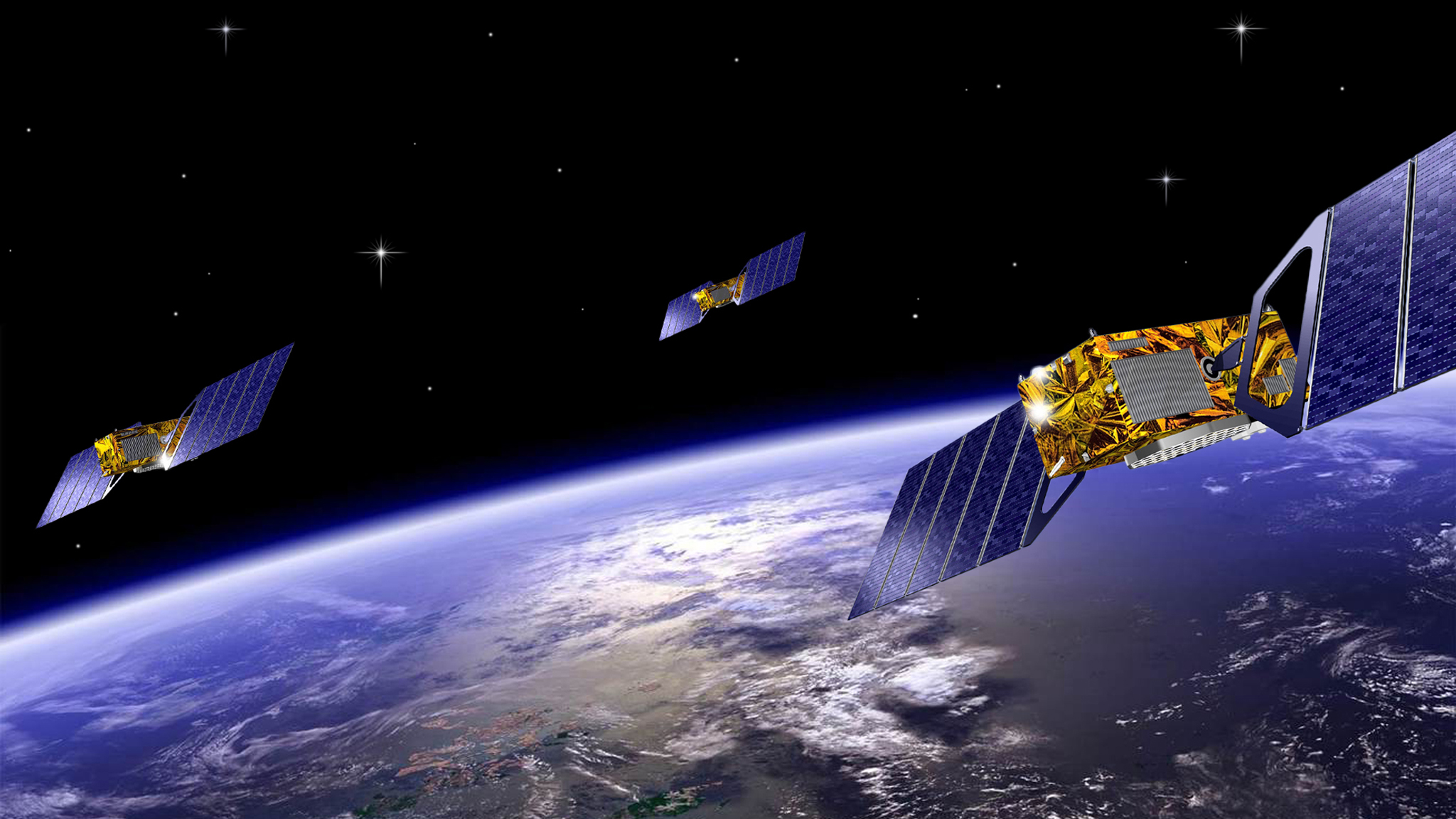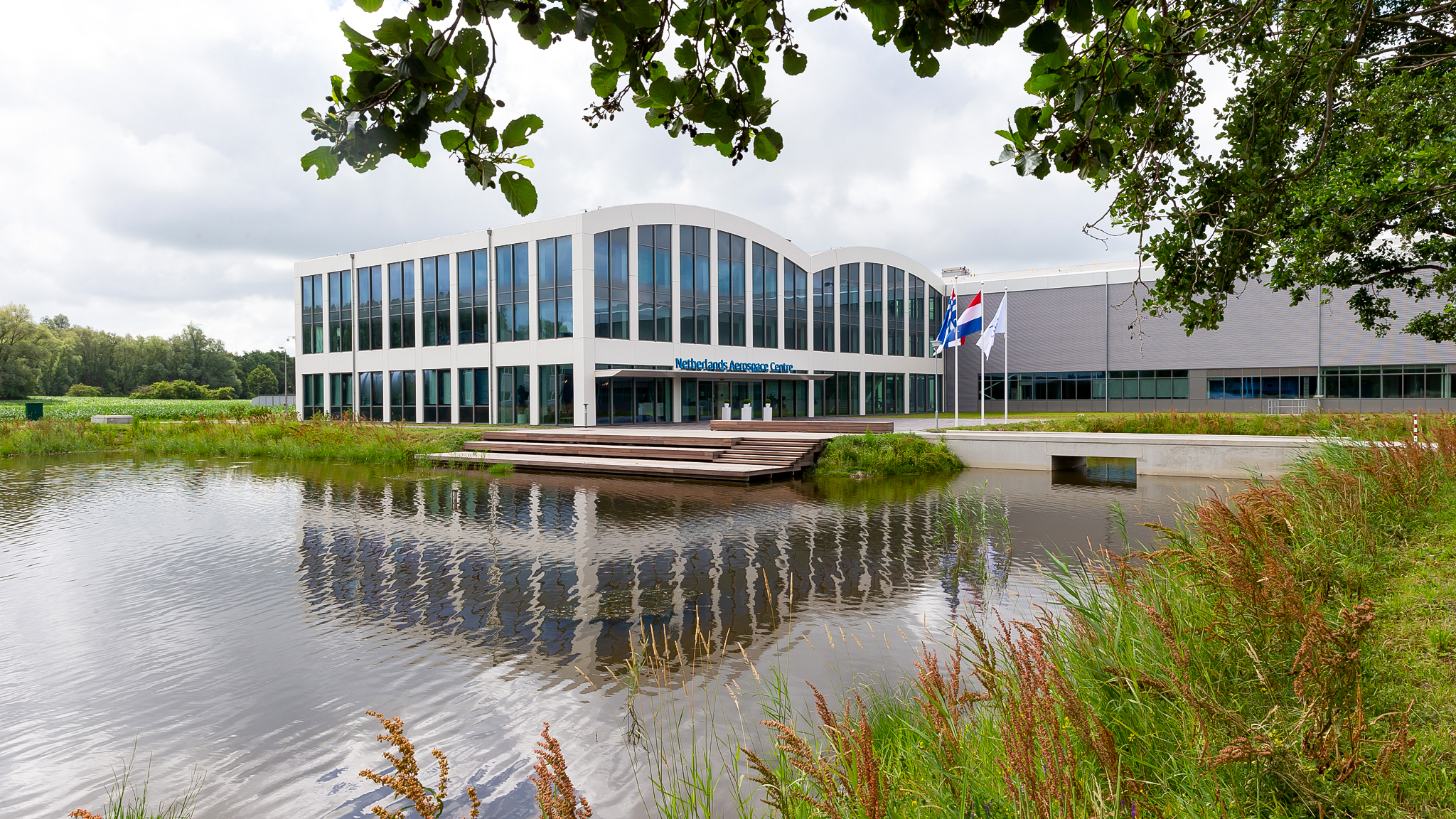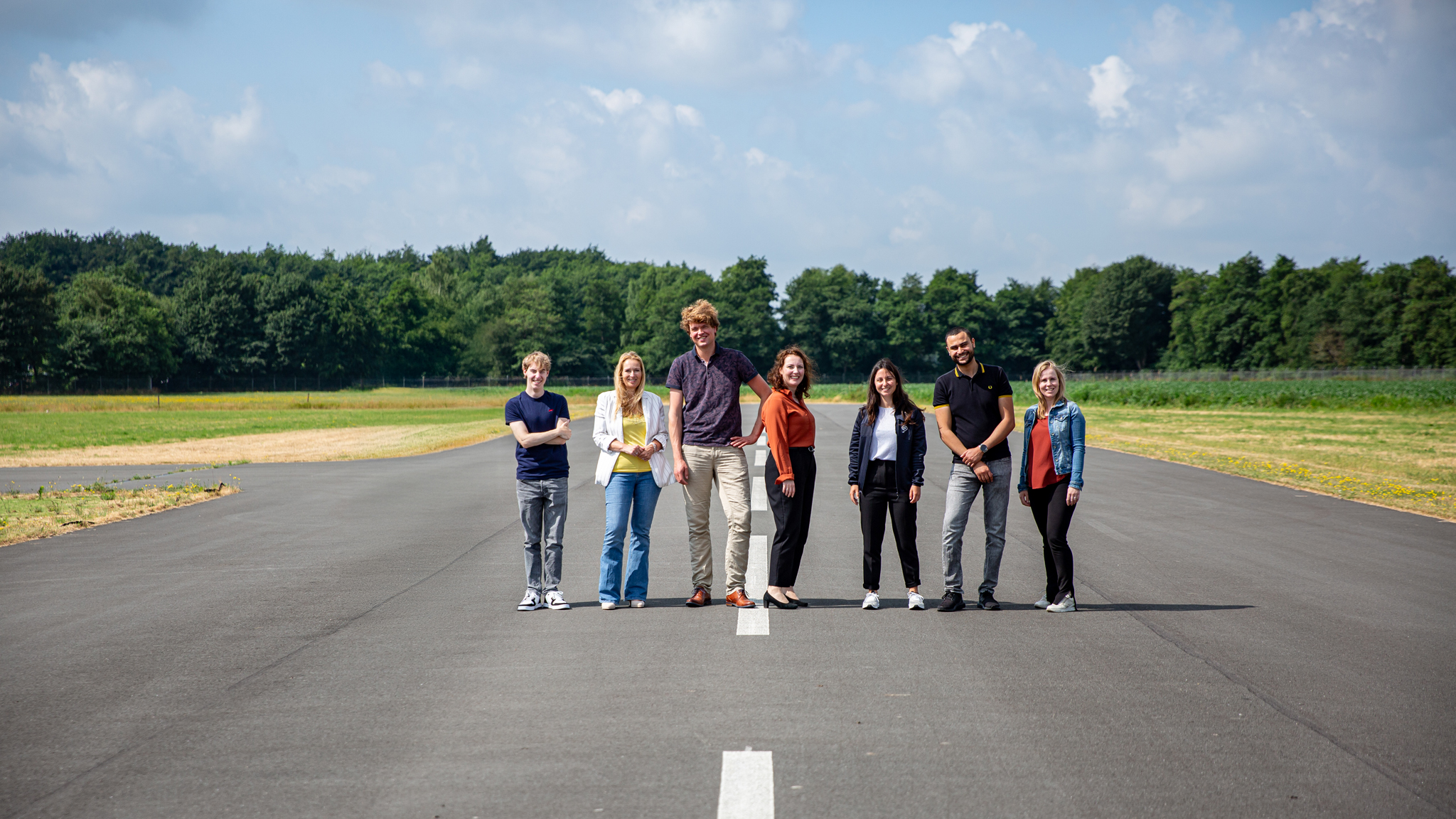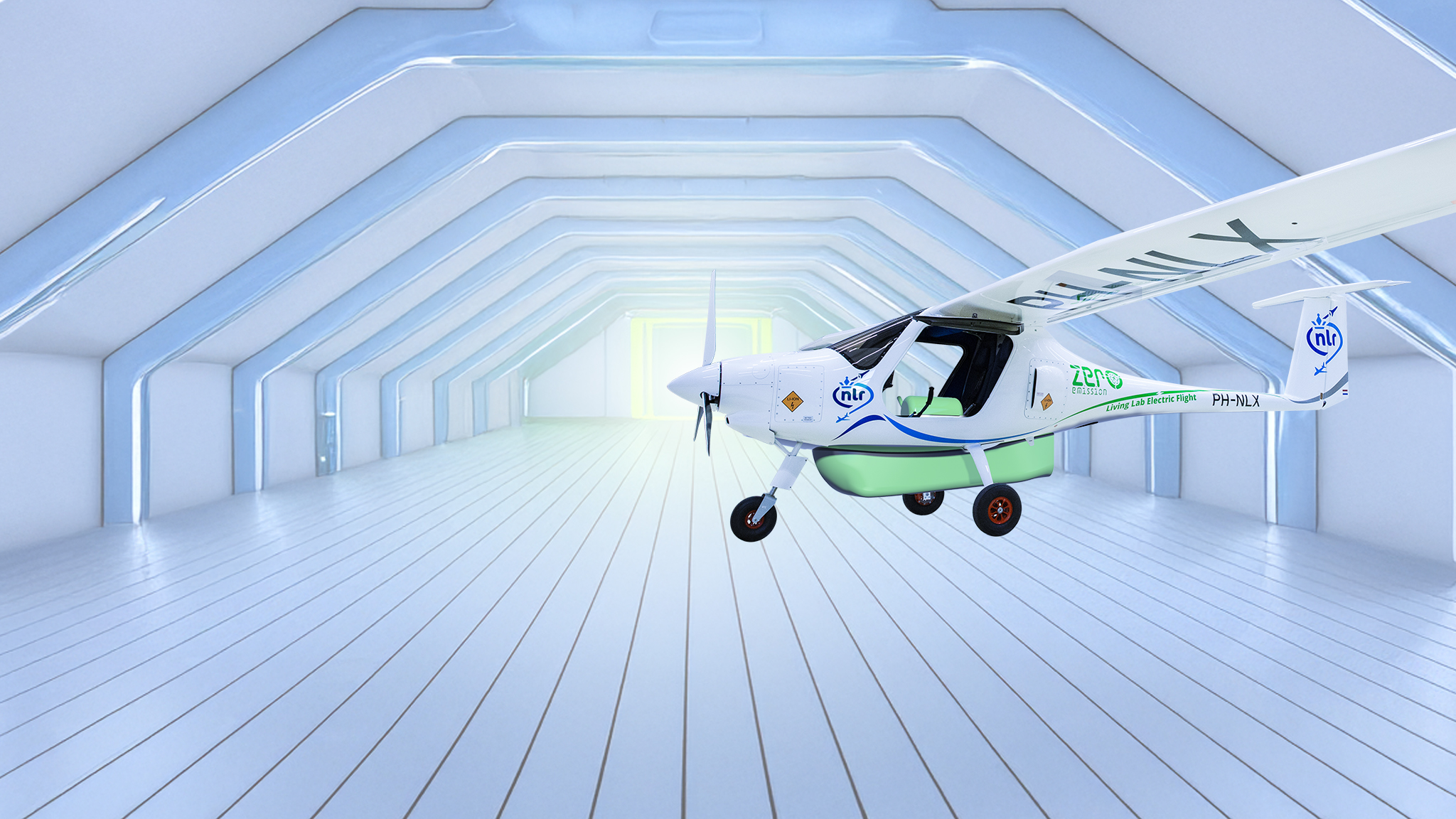“We don’t yet have a good answer to the militarisation of new domains such as cyber and space.” The Defence Minister, Ank Bijleveld-Schouten, made no bones about it during her presentation of the Defence Vision for 2035 in October. According to her, the department is not yet sufficiently well equipped for the changing threats and does not have the adaptive capacity to deal with the unpredictability of the enemy. Heavyweight stuff. This is one government figure at any rate who is confirming the increasing role that space plays in the contemporary information society.
It is obvious to many that satellites are now indispensable in our current technologically oriented society. However, how much more vulnerable that infrastructure makes us and how much protection is needed are questions that cannot be answered so quickly. According to Michel Keuning, a member of the board of SpaceNed, that realisation is growing slowly. He has been working at NLR for over 24 years and made the switch from aviation to the space domain seven years ago.
“Before I made the move to space, I learned a lot about the Defence Department, where I worked on the integration of training functionality in the cockpit of the Joint Strike Fighter, for instance. In those days, Defence didn’t really look at space much – the understanding of what was and was not possible from space was marginal. That’s very different now. The importance and potential of space for Defence became clear to me and we had the right people in house to be able to support the Defence Department.”
After his switch, Keuning and his department have worked in recent years together with TNO and the Department to set the wheels in motion for that transition.
“Space is a genuine game changer in the military domain” – Peter Huis in ’t Veld
Peter Huis in ’t Veld of the NIDV (Nederlandse Industrie voor Defensie en Veiligheid) worked for the Royal Netherlands Air Force for a long time. He gives another example of how the playing field is changing: “I worked for nearly thirty years at the Air Force. Particularly in the early years, the threat seemed to come from the east. Other than in defences against ballistic missiles, space played no significant role at the time in our national security. It was all about providing conventional air power – effectiveness from the skies, for defending national boundaries together with the navy and the army. That changed once the armed forces began to use satellite communications and satellite navigation more and more. Since then, our society as a whole has become heavily dependent on satellites that fulfil key roles, for instance in communications, navigation, agriculture, horticulture, meteorology and environmental monitoring. And along with that, space has become much more important for the Defence Department.”
A changing perspective
It’s not only the areas that the Defence Department are concerned with that are changing.
“The emphasis in the past for SpaceNed was only on science and the economy,” says Keuning, “looking in particular at the relevance for ESA. We’ve changed course a little recently, with more social connections from our activities and a ‘broader’ membership. Space flight is not a goal in its own right for that. We’re focusing on themes that determine the needs: defence and security, science, and social and economic interests. So we’re aligned more with the call on Secretary of State Mona Keijzer of Economic Affairs and Climate Policy – as parliament requested during the General Debate in the Lower House in 2018 and 2019 – to provide a broader perspective for Dutch industry by getting her space policy to fit in better with those of her colleagues in other departments.”
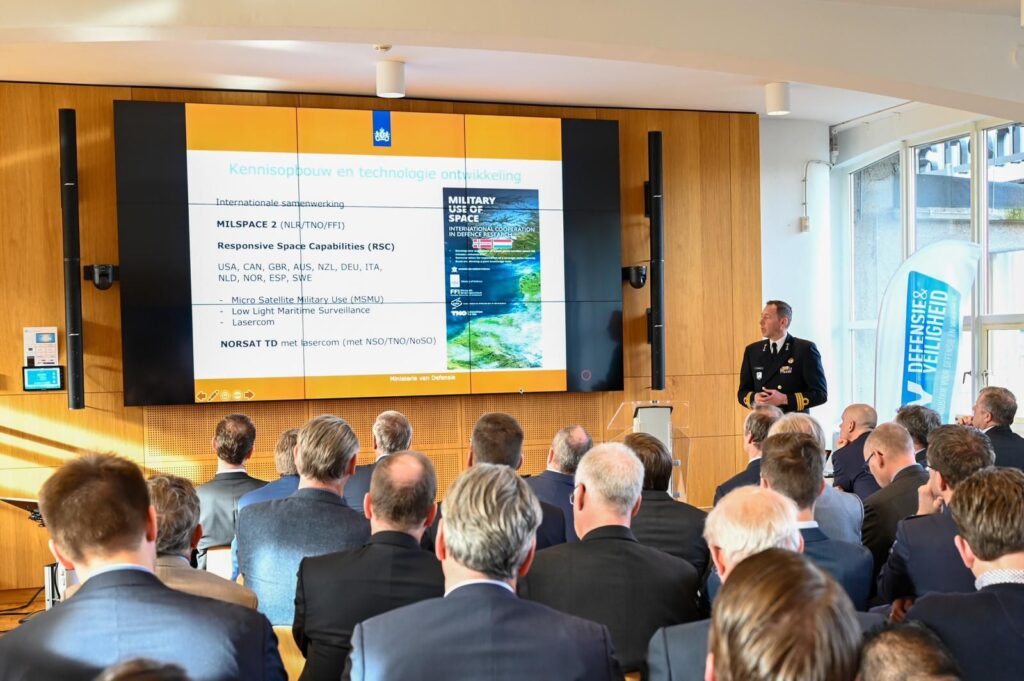
“The focus has shifted over the years for the NIDV too,” explains Huis in ’t Veld. “The foundation was set up in the eighties by various ministries within the Dutch government, namely the Ministry of Defence, the Ministry of Foreign Affairs and the Ministry of Economic Affairs and Climate Policy. The reason for setting it up was to create a single point of contact for getting the Dutch defence and security industry involved in governmental contracts. In its early years, the NIDV was known as the NIID: Nederlandse Industrie Inschakeling Defensieopdrachten. When the police forces were reorganised, the letter V – for safety in Dutch – was added because the NIDV started focusing on the police and fire brigades too then. Nowadays, the NIDV plays an important liaison role between the commercial and governmental sectors and we represent the various interests of Dutch industry, internationally too.”
“The European Union has been given plenty of warnings that it should stand on its own two feet rather more.” – Michel Keuning
Fighting for a safe future
Ms Bijleveld discussed the Defence Vision in October, emphasising that choices need to be made. The world is changing radically and the Defence Vision for 2035 gives a picture of the challenges that the armed forces are facing. The work of the Defence Department will change drastically in the coming decades. Choices will indeed have to be made for that, as well as for the financial and other resources that will be made available. Space is becoming increasingly important for the Dutch armed forces and they are currently working hard on a Defence Space Strategy that embodies the Defence Department’s aims for use of the military domain in space. As part of that, a choice has also been made for a stronger European defence structure (space was included in November 2019 as NATO’s fifth operational domain).
Participation
The Defence Vision hasn’t just appeared out of the blue, of course.
“The NIDV organised a session early in 2020 at which fifty participants were able to provide input for the Defence Vision,” says Huis in ’t Veld. “On top of that, the Ministry of Defence also gets advice from various quarters – sometimes on request and sometimes not, which is fortunately appreciated. There is simply a vast amount of knowledge at the centres of expertise and in industry.”
Add to that the fact that the mission-driven key sector and innovation policy led to the publication in the summer of 2019 of the KIA (Knowledge and Innovation Agenda) for Security. The government, centres of expertise and the commercial sector acted together to create this, with five sub-programmes that provide the foundations for five themes that SpaceNed and the NIDV deem important.
“The KIA will let the industry prepare along with the government for implementing the upcoming strategy,” says Keuning. “It will address topics such as ‘observation from space’ and ‘space situational awareness’. The second of those is about creating a clear picture of what is going on in space. We’ve recently obtained a subsidy, by the way, for setting up a partnership on the theme of ‘Ground-Based Situational Awareness’ too.”
Coalition agreement
The Defence Vision gives a picture of what the department will need to fulfil its constitutional tasks.
“Governmental figures leaving a legacy like that so shortly before elections is pretty unique,” states Huis in ’t Veld. “It means that the cabinet is placing the initiative on its successors to start investing.”
The elections to the Lower House of Parliament are on 17 March 2021, after which the parties will have to draw up a new coalition agreement.
“The coronavirus crisis still isn’t over,” says Keuning, “and it will certainly leave its mark on the national budget. It would be unwise, though, to use up all the money that’s needed for implementing the Defence Vision and Space Strategy for resolving shortfalls left by the crisis. SpaceNed and the NIDV are therefore behind Minister Bijleveld’s vision, which not only benefits a safe and secure society but also helps create new possibilities with high-quality employment opportunities for Dutch industry. On top of that, defence investments in space will be very useful for pulling the industry out of the coronavirus crisis!”
Opportunities
Huis in ’t Veld emphasises that the way a country or area is defended would now be inconceivable without space being involved.
“Satellite communication and navigation, for example, are indispensable for the armed forces. On top of that, a lot of information is gathered from space. That means that the armed forces can respond quickly and in a coordinated way to changing circumstances. Space is a genuine game changer in the military domain.” And we’re currently living in tempestuous times, according to Keuning. “The space race is really only just starting, and the European Union will have seen enough signals during the Trump presidency that it should stand on its own two feet a bit more. France at least is taking the changes in global politics pretty seriously.”
“And speaking of the French,” interrupts Huis in ’t Veld, “their air force has officially been renamed the Armée de l’Air et de l’Espace since July. And the US previously set up a Space Command. That too is a clear sign that space has acquired a prominent role in the military domain.”
Stronger together
SpaceNed and the NIDV signed a Letter of Intent in June 2020 to emphasise and add depth to their cooperation. This was a logical step for the two sector organisations, given that security and space flight are becoming increasingly intertwined. There was already a lot of overlap among the members, which made bringing the specialist areas of the two organisations together a simple choice.
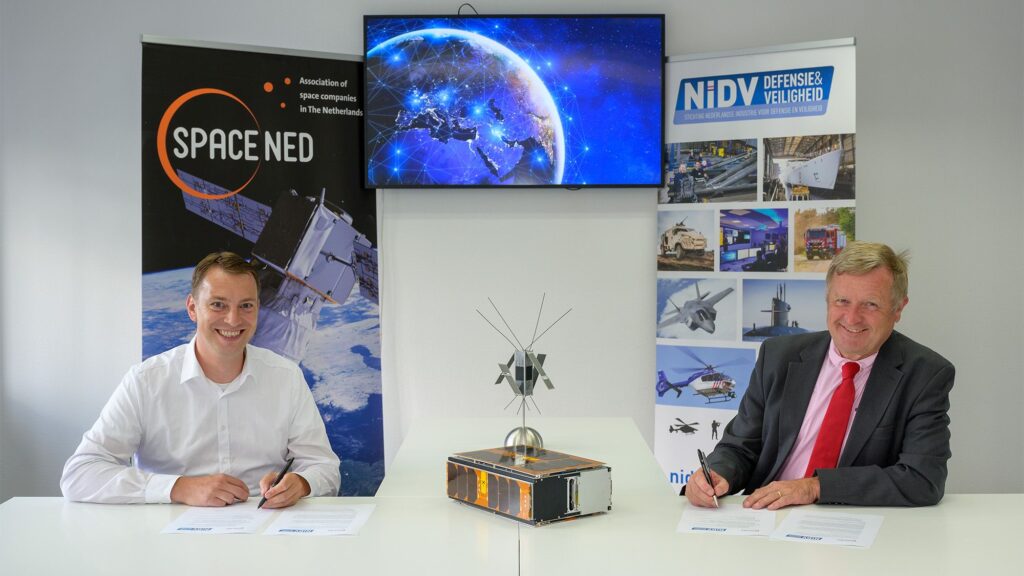
The public and private infrastructure of satellites in space is strategically very important for the way our data-driven society works. And it is no longer the exclusive realm of global players such as the US, Russia, Europe, China and India. Falling launch costs and miniaturisation have made it possible for private parties and smaller states to launch their own small satellites.
This agreement means that the two parties can make a more effective contribution together to preparing a role for the Netherlands in international projects in the space domain for Defence and Security, for instance in the context of the European Defence Fund (EDF), Horizon Europe and the Security theme of the mission-driven key sector and innovation policy. With that in mind, a Space working group of companies was set up where innovations, new technologies and market opportunities can be discussed further and picked up by the participating companies.
This article was previously published in the journal Ruimtevaart (issue 1-2021), published by the NVR (Nederlandse Vereniging voor Ruimtevaart).
